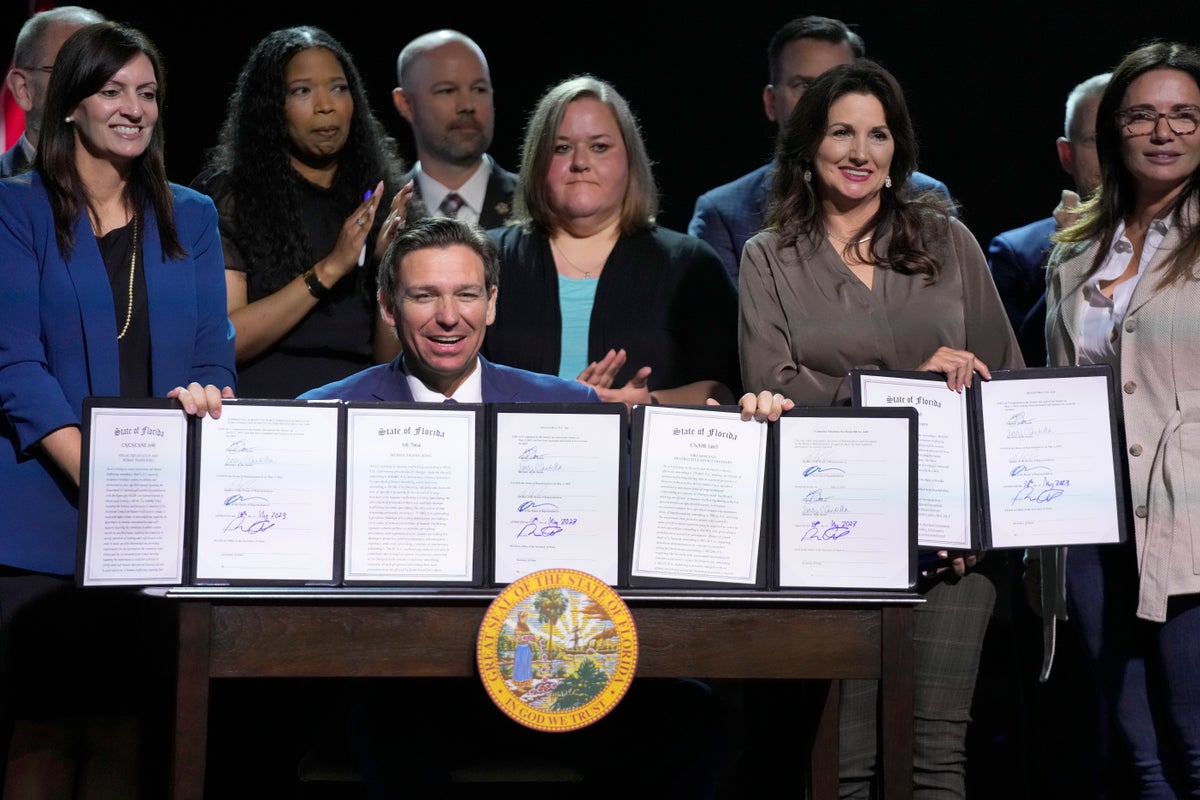
A federal judge has partially struck down Florida’s ban on gender-affirming healthcare for transgender minors, in a ruling that condemns anti-trans bigotry and debunks bogus claims from state officials.
The ruling from US District Court Judge Robert Hinkle on 6 June grants a preliminary injunction that blocks enforcement of a law signed by Governor Ron DeSantis and rules that prevent a group of trans youth who sued the state from accessing widely accepted care, including puberty blockers and hormone therapy, as their legal challenge plays out.
A decision from Judge Hinkle, who was appointed by then-President Bill Clinton, follows a lawsuit against the state’s surgeon general from a group of Florida families with trans children, who argued that the state could not “demonstrate any rational basis, much less an important or compelling one, for the transgender medical bans which prevent transgender adolescents from getting safe and effective medically necessary healthcare.”
Judge Hinkle’s ruling eviscerates the state’s arguments and points to discriminatory language and bigotry that have fuelled Florida’s rules as well as similar legislation across the country, condemning the “unspoken suggestion running just below the surface in some of the proceedings that led to adoption of the statute and rules at issue – and just below the surface in the testimony of some of the defense experts – is that transgender identity is not real, that it is made up.”
“The elephant in the room should be noted at the outset. Gender identity is real. The record makes this clear. The medical defendants, speaking through their attorneys, have admitted it,” the judge wrote.
“Any proponent of the challenged statute and rules should put up or shut up: do you acknowledge that there are individuals with actual gender identities opposite their natal sex, or do you not? Dog whistles ought not be tolerated,” he added.
The judge said widely accepted standards of care supported by major health organisations and physicians and the “great weight of medical authority” supports affirming healthcare, and that the plaintiffs are likely to prevail in the case on their claim that a prohibition against such care is unconstitutional.
The judge’s order also slams Florida’s dubious claims regarding transition “regret” and false statements that the state joined “international consensus” against affirming healthcare.
“This assertion is false. No matter how many times the defendants say it, it will still be false,” he wrote. “No country in Europe entirely bans these treatments.”
Jane Doe, who joined the lawsuit on behalf of herself and trans daughter Susan, said in a statement that the family is “breathing a huge sigh of relief” following the ruling.
“My husband and I have been heartbroken and worried sick about not being able to care for our daughter in the way we know she needs,” she said. “I’m sure most any parent can imagine the sense of powerlessness that comes from being unable to do something as basic as get medical care for your child.”
The families are represented by Southern Legal Counsel, GLBTQ Legal Advocates & Defenders, the National Center for Lesbian Rights, and the Human Rights Campaign.
A statement from the groups supporting the families said the ruling is a “powerful affirmation of the humanity of transgender people, the efficacy of well-established, science-based medical care, and of the rights of parents to make informed healthcare decisions for their children.”
The Independent has requested comment from Florida’s Department of Health.
By the end of May, state lawmakers across the country had introduced more than 500 bills impacting LGBT+ this year, including 220 bills specifically targeting trans and nonbinary Americans, according to an analysis from the Human Rights Campaign. More than 70 such bills have been signed into law.
At least 19 states have enacted laws or policies banning affirming healthcare for young trans people, all against the guidance of health providers and major medical organisations, including the American Medical Association and the American Academy of Pediatrics.







